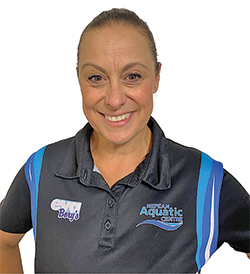 Your baby can’t yet walk, so why should they learn to swim? For safety first and foremost.
Your baby can’t yet walk, so why should they learn to swim? For safety first and foremost.
This year’s Royal Life Saving Australia National Drowning Report showed a 25 per cent decrease in drownings of children aged 0-4 on the 10-year average, which is encouraging, however we still have work to do. One of the best things a parent can do to keep their child safer around water is to ensure they start Learn to Swim classes as soon as possible, especially with summer fast approaching, but were you aware of all of the other benefits of swimming lessons for babies?
We often have less time than we would like with our kids (it is an unfortunate effect of being so busy) but swimming provides quality bonding time. Time in the pool is one of the few times when your child has your undivided attention for the duration, so make the most of it!
Swimming can also improve a baby’s sleeping pattern. While I’m not making any promises that swimming will make baby sleep through the night every night… I can say that the extra exercise did make my notorious night owl babies sleepier! Additionally, swimming can improve a baby’s appetite, and in turn a full belly can further promote sleep… win win!
Swim time helps promote important muscle development and control in babies at a young age. Little ones will need to develop the muscles needed to hold their heads up, move their arms and legs, and work their core in coordination with the rest of their body. As a result, swimming helps to improve coordination and balance. It’s not easy learning to move those little arms and legs together, and even small, coordinated movements represent big leaps in your baby’s development.
Being in the water engages your baby’s body in a completely unique way, creating billions of new neurons as your baby kicks, glides, and smacks at the water. Bilateral cross-patterning movements, which use both sides of the body to carry out an action, help your baby’s brain grow. This facilitates communication, feedback, and modulation from one side of the brain to another. Down the road, this may improve reading skills, language development, academic learning and spatial awareness, as demonstrated by a recent four-year study of more than 7,000 children by Griffith University which suggested that children who swim have advances in physical and mental development when compared to their peers who don’t swim.
Swimming is also a unique social experience, which furthers its brain-boosting power.
Water baby’s classes also include elements including songs and skin-to-skin contact with parents or caregivers. Children interact with one another and the instructor and begin to learn to function in groups. These elements, plus the fun of learning a new skill, can boost your baby’s sociability and wellbeing!
Don’t forget, you can get your baby prepared for swimming before you go to the pool, by using bath time at home to get your baby used to the feeling of being immersed in water and the splashing of the water on and over their faces and heads. Swim Australia recommends starting lessons from six months of age.

